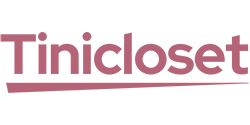The relentless demands of a digital world can leave busy professionals feeling perpetually tethered to screens. While technology enhances productivity, it’s essential to know when to unplug. A digital detox offers mental clarity, reduces stress, and fosters creativity, ultimately leading to improved well-being both professionally and personally. By understanding the motivation behind unplugging and implementing practical strategies, professionals can find balance in their hectic lives. This guide provides insight into why stepping back from digital devices is crucial and how to effectively achieve it without sacrificing professional responsibilities.
The Why: Understanding the Need for Digital Detox

For busy professionals, the necessity of a digital detox extends beyond the simple act of unplugging. The relentless digital bombardment can insidiously creep into every facet of life, eroding mental health, diluting productivity, and straining personal relationships. Understanding these effects is crucial to recognizing why stepping away from screens is indispensable.
Constant connectivity saturates our cognitive capacities. With notifications aplenty and devices primed for distraction, focusing on tasks becomes challenging. Studies show that frequent interruptions impede deep work, leading to a fragmented attention span. This cognitive overload is not just a productivity killer; it amplifies stress levels, leaving professionals feeling perpetually on edge.
The mental health implications are equally profound. Screen addiction can lead to anxiety, depression, and even sleep disturbances. Psychologists note that the blue light emitted from screens disrupts the circadian rhythm, imperative for restorative sleep. A sleep-deprived professional is not only less productive but also more vulnerable to stress and emotional outbursts.
Moreover, technology’s intrusion has altered how we relate to one another. Texting has replaced conversation, and social media interaction masquerades as genuine connection. These changes have ushered a sense of isolation despite constant connectivity. A professor of psychology once illustrated with a case study of a mid-level executive, Emma, who was perpetually online. Feeling increasingly detached from her family due to constant digital engagements, Emma pursued a digital detox. This decision was transformative. Emma reportedly experienced improved familial bonds and rekindled her enthusiasm for work.
The pressure to always be available can also blur the lines between personal and professional life. Multitasking becomes the norm, not the exception, but with detrimental effects. The strain from juggling work emails during family time robs individuals of much-needed leisure and deprives them of meaningful interactions. A tech entrepreneur exemplified this by scheduling tech-free Sundays, which resulted in a noticeable reduction in workplace stress and an enhancement in creative problem-solving skills.
Recognizing these impacts is step one in appreciating the importance of a digital detox. It portrays an opportunity to rebalance one’s digital dependency. Such detox helps reclaim valuable time, fosters genuine human connections, and revitalizes mental clarity. Professionals are beginning to see digital detox as not just beneficial but essential for maintaining a healthy, productive, and harmonious life.
In considering this chapter’s insights, one may further read about other methods to nurture meaningful interactions, perhaps even with our pets, as detailed in articles like choosing a pet for a child with autism or ADHD.
The How: Effective Strategies to Unplug

Unplugging can seem daunting, especially for busy professionals balancing demanding schedules. However, practical strategies can help create a healthier relationship with technology. One effective approach is to set specific tech-free times where all digital devices are put aside. This could be during dinner, an hour before bedtime, or even one day per weekend. Establishing these moments allows for mental decompression and promotes quality time without distractions.
For those struggling with discipline, utilizing apps designed to limit screen time can be beneficial. These applications not only track usage but can also set limits on app activity, offering a gentle reminder to stay present. However, professionals must find a balance to ensure these tools serve as aids rather than additional sources of stress.
Creating digital-free zones in a home or office enhances the unplugging strategy. Spaces free from screens invite deeper interactions. Consider designating certain rooms or areas, such as the dining room or a section of the office, as no-phone zones. This physical separation of work and personal life helps in reinforcing boundaries and prioritizing real-world engagements.
Professionals often worry about missing out on crucial updates, so it’s important to communicate boundaries to colleagues. Setting clear expectations about availability during off-hours can reduce anxiety related to being unplugged. It’s also beneficial to assure team members of contingency plans should urgent matters arise, further easing the detachment process.
The time gained from reducing screen addiction should not go to waste. This is an opportunity for personal enrichment and stress relief. Engaging in hobbies, whether painting, gardening, or writing, fuels creativity. Additionally, spending time in nature provides a powerful antidote to technology-induced stress, offering fresh air and a change of scenery necessary for revitalization. Walking through a park or exploring a new hiking trail can rejuvenate the mind and body, offering a serene background for contemplation.
Ultimately, these strategies are not about demonizing technology but fostering a smarter interaction with it. By implementing deliberate breaks, professionals can reclaim their time and sanity, paving the way for a more balanced life. For those interested in experiencing the benefits of natural relaxation, exploring activities like walking a dog in a scenic area could be rewarding (explore more here).
Final words
Recognizing the importance of a digital detox enables professionals to reclaim control over their lives. By understanding the need to unplug and employing practical strategies, it’s possible to find a healthy balance between digital engagement and personal well-being. The journey to unplugging may seem daunting at first, but incremental steps will lead to substantial improvements in mental health, productivity, and life satisfaction.
Take the first step towards a balanced life by scheduling your digital detox today. Explore our tools to help you unplug successfully.
Learn more: https://www.detoxaid.com/schedule
About us
DetoxAid provides tailored solutions to help busy professionals unplug from digital devices. Our platform offers customizable plans, tech-free challenges, and community support to guide you towards a healthier digital-life balance.



